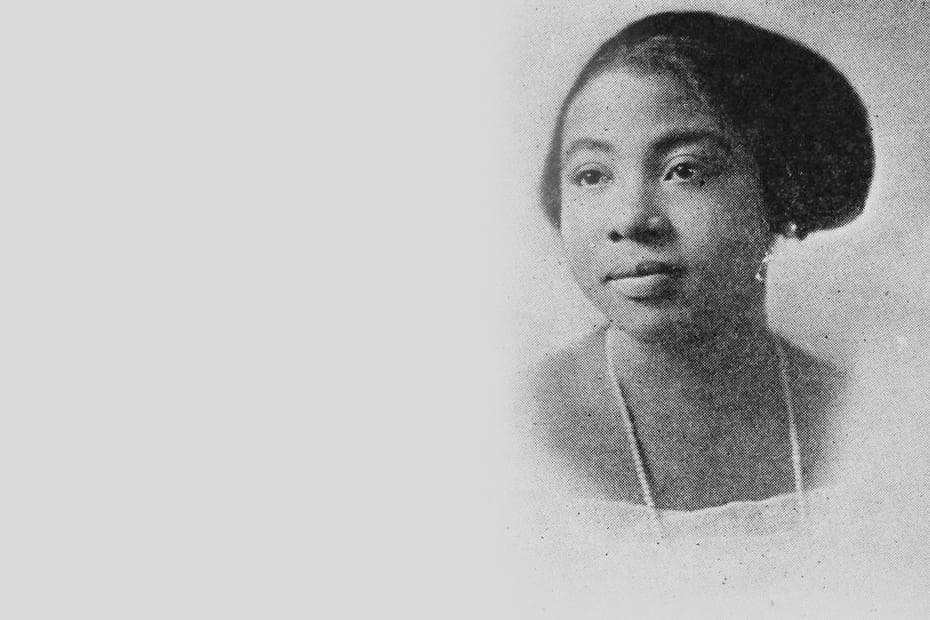
articles / Gershwin
Open Ears: Eva Jessye and the Harlem Renaissance

Eva Jessye, 1923
About Open Ears: So many people who made invaluable contributions to classical music have been nearly lost to history or are underappreciated in their time. That’s why KUSC is starting Open Ears, a series of stories about composers, musicians, and conductors who deserve more recognition. You can learn more and explore other articles here.
You should not suffer the past. You should be able to wear it like a loose garment, take it off and let it drop.
That famous quote came from a real force in American music during the first half of the 20th century, Eva Jessye (1895–1992), who has often been called the “grand dame of Black music”. Jessye’s life is the story of an African American girl growing up in Kansas with loads of musical talent and drive. She was a singer, choral director, composer, actor, teacher, and poet—a potent combination that led her to the east coast in the early 20th-century and eventually to New York City and Harlem. Eva Jessye found herself in the middle of the creative whirlwind known as the Harlem Renaissance. With her skills and talent, she was truly in the right place at the right time. Harlem, even more than Paris in the 1920s or San Francisco in the 1960s, was, for ten or fifteen years, the place to be. The impact of the Harlem Renaissance cannot be underestimated—not just for African Americans but for the nation as a whole and the world beyond, influencing literature, poetry, culture, fashion, music, politics, and modern mores.
For more than four decades, Eva led a choir that was one of the top gospel, folk, and spiritual groups of the day. At first, they were known as the Original Dixie Jubilee Singers but they later changed the name to the Eva Jessye Choir. George Gershwin took notice and hired Eva and her singers for the authentic sound they brought to his radical new opera, Porgy and Bess. Jessye was named music director of Gershwin’s show, and she insisted that her choir be paid not only for performances but for rehearsals as well at a time when this wasn’t the norm. Porgy and Bess opened in 1935, and soon, in addition to being the choir leader, Eva also had a role in the opera, playing Strawberry Woman.
Throughout her life, Eva Jessye found herself in the midst of pivotal moments during the battle for civil rights in America. In 1936, at the end of the Porgy and Bess national tour, she and the cast protested a segregated theatre. Eventually, management gave in, and that Washington D.C. venue was integrated for the first time. Three decades later, Washington would be the site of another groundbreaking moment for the Eva Jessye Choir when they performed at the March on Washington for Jobs and Freedom. Amazing milestones in a remarkable life.






